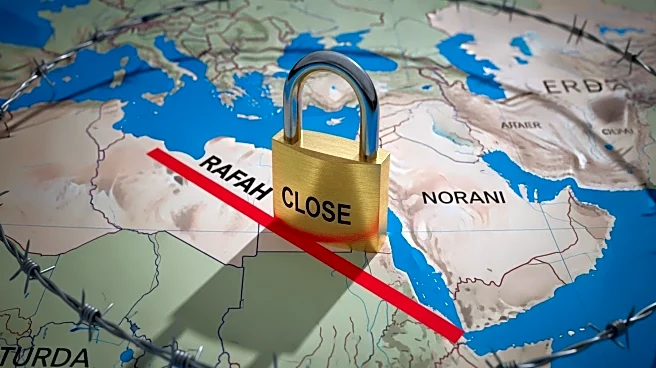What's Happening?
Prime Minister Benjamin Netanyahu has instructed that the Rafah border crossing between Gaza and Egypt remain closed until further notice. This decision follows an announcement by the Palestinian embassy
in Egypt that the crossing would reopen. The closure is contingent upon Hamas fulfilling its obligations, including the return of hostages' remains and adherence to an agreed-upon framework. The Rafah crossing is a critical point for the movement of people and goods, and its status is often a focal point in the ongoing conflict between Israel and Hamas.
Why It's Important?
The closure of the Rafah border crossing has significant implications for the humanitarian situation in Gaza, as it restricts the flow of essential goods and aid. It also affects diplomatic relations between Israel, Egypt, and the Palestinian authorities. The decision underscores the fragile nature of ceasefire agreements and the complexities involved in negotiations between Israel and Hamas. The situation highlights the ongoing challenges in achieving lasting peace and stability in the region, with potential impacts on regional security and international diplomatic efforts.
What's Next?
The reopening of the Rafah crossing will depend on Hamas's actions regarding the return of hostages' remains and compliance with the ceasefire terms. The international community, including Egypt, may play a role in mediating and ensuring that both parties adhere to their commitments. Continued monitoring and diplomatic engagement will be crucial in addressing the humanitarian needs in Gaza and preventing further escalation of tensions.










